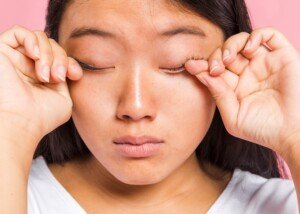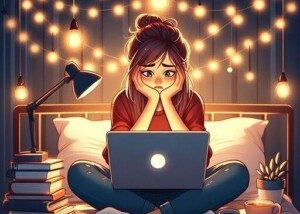
If you go to sleep late and wake up for the day late, this could put you at risk for an earlier death, when compared to going to bed earlier and getting up earlier.
This conclusion comes from a study out of Northwestern Medicine and the University of Surrey in the United Kingdom (UK) and involved half a million participants.
Going to bed late and getting up late meant a 10 percent higher risk of death than with “larks” – those who went to sleep early and rose with the sun.
Could the higher risk of dying sooner be related to medical problems that usually come with staying up very late and sleeping in late?
The researchers, however, adjusted for the health ailments that tend to go along with being a night owl.
Proposed Reasons for the Earlier Death Association
• The internal biological clock in night owls doesn’t synch with their external environment.
• Mental stress
• Late night eating
• Lack of exercise
• Inadequate sleep
• Being awake at night in solitude while everyone else is asleep
• Drugs or alcohol
Learning to Go to Sleep and Wake up Sooner
The link to earlier mortality isn’t all that surprising even if you exclude the unhealthy behaviors associated with staying up past midnight.
After all, our ancient ancestors, who led a perfectly natural life, had no choice but to go to bed soon after the sun set (no artificial source of light) and get up upon dawn (who wouldn’t, after going to bed as early as sunset?).
The human body evolved to take to sleep as the sun went down and get up for the day at the crack of dawn.
The study authors say that a mix of genetics and environment play nearly equal roles in determining if we are a night owl or lark.
However, there are many people who can’t help but be night owls when they don’t have to get up early, yet adjust super fine to a lark’s schedule when they DO have to get up early every morning.
“Set a specific bedtime,” says Sashini Seeni, MD, a family medicine practitioner with DoctorOnCall, an online doctor and pharmacy.
“Turn off all digital devices one hour before you plan to turn in for the night.
“Work out earlier in the day. Exercising can help you feel tired and fall asleep more easily.
“Avoid taking caffeine in the evening
“Put your alarm clock far from bed. If it’s far from bed, you have to get up out of bed to shut it off. By then, you’re up.”
There’ll be the challenge of remaining up and the temptation to crawl back into bed. But for some people, the far-away alarm actually works.
“Go out of the bedroom as soon as you shut off the alarm,” adds Dr. Seeni.
“Take a cold shower. This can make us feel refreshed and rejuvenated.
“Eat a healthy breakfast. Good food can boost energy and make us stay awake.
“Start your day with a workout.” This may last only 10 minutes; doesn’t have to be lengthy or elaborate.
Make sure you’re exposed to light early in the morning. Stand or sit by a bright window for five or 10 minutes.
Get as much of your homebound work done early in the day and evening rather than letting it wait till late.
Stop eating three or four hours prior to bedtime.

 DoctorOnCall
DoctorOnCall 







































